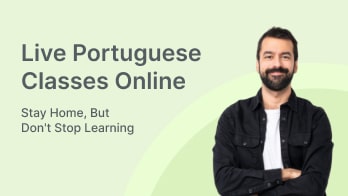There’s no such thing as a right or wrong dialect in Portuguese. There isn’t a more correct variant than the other, more appropriate than the other, or more truthful one is “authentic” than the other. Portuguese is one of the most useful languages in the world. It is actually spoken by 5% of the world population. Portuguese often get the short shrift in the North American academy. It is widely considered valid, and I think the importance of Portuguese has rapidly exceeded the focus on teaching it in the formal educational system.
You can decide which dialect to study based on the following factors :
- How important is the number of speakers for you?
Some people learn languages for the sole purpose of being able to speak with as many people as possible. If you’re one of these people, you might want to go for Brazilian Portuguese (approximately 182 million speakers) rather than European Portuguese (approximately 10 million speakers). While making your decision, it’s also interesting to consider that the Portuguese dialects are spoken collectively in African countries such as Angola, cape Verde.
- What region of the world are you interested in?
It might be easy to choose a dialect based on the type of culture you’re most drawn to. Pretty much all Portuguese-speaking countries have cultures that play around a lively social life, delicious (heavy) food, the beach, the sea, and friendly weather that invites you to go out and get some sun.
The difference lies mostly in music and dance traditions, common everyday communication, and of course, history. This could be an interesting starting point to decide which dialects you’d like to study. One thing’s for sure: you will have the European option, the south American option, the South American option, and the African option. That’s a lot of different cultures and dialects you’d like to study.
- Which dialect sounds best to you?
You might just go with your intuition when you listen to the Angolan dialect, the Portuguese dialect, the Brazilian dialect, or even the cape Verdean dialect.
Portuguese Language Lessons for beginners
A lot of beginners think you need to learn vocabulary and grammar before you start speaking Portuguese and listening to other people speak Portuguese. Use self-measures like flashcards and structured audio lessons to build your vocabulary, plus kids TV shows to get exposure to natural spoken Portuguese. I’d also recommend that you practice talking to native Portuguese speakers.







